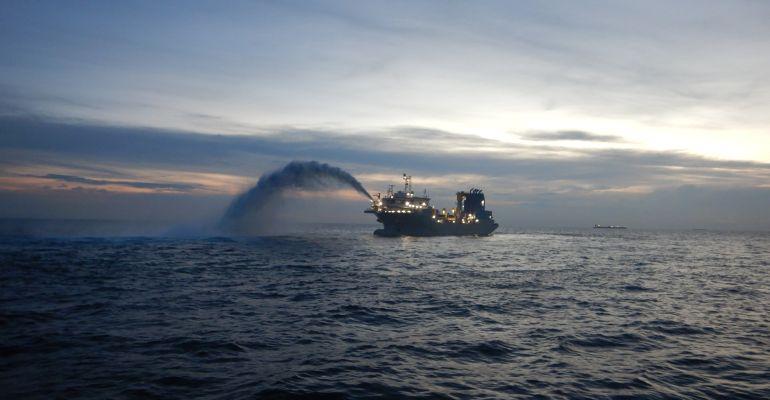The ULEV notation, newly developed by BV, recognises performance on ships that exceed existing IMO Marpol requirements for lowering pollutant emissions.
The five Jan De Nul vessels – Sanderus, Ortelius, Tristao Da Cunha, Afonso De Albuquerque, and Diogo Cao – are specifically designed for ultra-low emissions to outperform stringent low emissions operational policies.
The voluntary notation accounts for air quality, including hydrocarbons, carbon, NOx, and particulate matter, as well as particle numbers. For shipowners looking to distinguish their fleets, the ULEV notation helps demonstrate a real and significant commitment to environmental protection.
“Preserving our environment is nowadays at the heart of all innovation strategies. Thanks to Bureau Veritas expertise and our environmental commitment, we have pioneered the development of rules for low-emission vessels and today we are very proud to accompany Jan De Nul on their sustainability journey,” said Laurent Leblanc, senior vice president technical & operations at BV Marine & Offshore.
As well as design solutions, Jan De Nul Group is adopting 100% renewable fuel, as a certified sustainable substitute for fossil fuel made from waste flows. Since the end of 2019, its first Trailing Suction Hopper Dredger in Zeebrugge has been operating on 100% biofuel. Jan De Nul Group is considering this switch for other dredging vessels.
Michel Deruyck, head of energy at Jan De Nul, reflected: “Air pollution is one of the biggest dangers to public health. Marine construction activities are mostly situated in the vicinity of coastlines, ports and harbours, and densely populated areas. Even if the dredging industry accounts for only 0.1% of the total emission of global shipping traffic, we feel personally involved in this issue and regard it as one of our core missions to do something about it.”
Copyright © 2024. All rights reserved. Seatrade, a trading name of Informa Markets (UK) Limited.
Add Seatrade Maritime News to your Google News feed.  |

